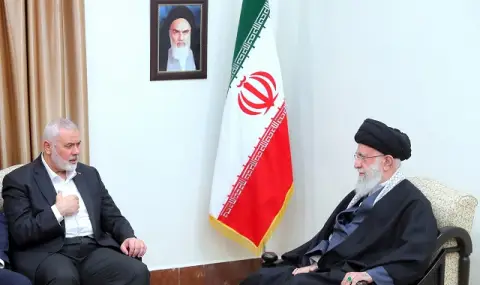A few days after the start of the conflict in the Middle East, Qatar took the role to an intermediary. But negotiations with Israel and Hamas are deadlocked. Will Qatar change its attitude towards radical Islamists?
Qatar has doubts about its role in the war in the Middle East, writes German public broadcaster ARD. A few days after Hamas attacked Israel on October 7, 2023, the small emirate took the position of mediator between the two countries. Some of the hostages taken by Hamas were released with the help of Qatar's diplomatic efforts. The opening of the border crossing between the Gaza Strip and Egypt for foreigners and the wounded was also organized with the assistance of Qatar as well as other countries.
Qatar had high hopes
In the beginning, Qatar's main negotiator, Mohammed al-Hulaifi, claimed that the emirate's goal was to free the civilian hostages, and that it was working with all its might to make it happen.
Today, however, more than six months later, the negotiations are deadlocked. There is some disappointment in the countries of the region. Qatar's Prime Minister and Foreign Minister Mohammed bin Abdulrahman al-Thani said a few days ago that Qatar's mediation is unfortunately being used for political purposes. Because of this, the emirate wants to rethink its role in the conflict.
The emirate is already tired of the criticism
They are nervous in Qatar. Instead of reaping media success, the emirate is now under fire from all directions. Israel publicly complains about the emirate's closeness to Hamas, criticism also comes from the US. It seems that the authorities in Doha are already tired of this situation, writes ARD.
A spokesman for Qatar's foreign ministry said the emirate was "extremely disappointed by these allegations". That is why Qatar is looking for a change in its role as a mediator, and Hamas seems to be becoming a burden.
And Qatar is actually extremely suitable as a mediator in this case. The emirate has ties to Israel, but also maintains relations with the radical Islamist organization Hamas. Since 2012, Hamas even has its own political office in Doha. But this may soon change, writes ARD. According to political scientist Mohamed Elmasri, the presence of Hamas leaders in Qatar is a burden for the emirate and creates tension that could have negative consequences for Qatar's interests.
Should Hamas move?
Hamas is already looking for a new location for its political offices, media claim. There is talk of Oman, Egypt or Turkey, notes ARD. Ankara currently seems to be trying to position itself as the new important mediator between Israel and Hamas. Therefore, it is not surprising that Al-Thani expressed his dissatisfaction with the current situation precisely in the presence of his Turkish colleague Hakan Fidan.
Turkey and Qatar have long been considered allies in the region. The question now is, is Turkey on Qatar's side? According to the French journalist Lila Jacinto of "France24" the fact that Al-Thani commented on the topic in the presence of the Turkish foreign minister is "a signal to the region that Qatar is handing over the mediation baton to Turkey," writes ARD. She also recalls that Hamas leader Ismail Haniyeh met with Turkish President Recep Erdogan. According to the journalist, the chances of a long-lasting truce are extremely small. "Israel will not listen to Turkey, the role of the US is weakened, and the Palestinians are suffering," says journalist Lila Jacinto.
Financial support for Hamas also matters
Qatar, meanwhile, has given a clear signal: while the emirate is making efforts to mediate the conflict, Hamas leaders may remain in Doha. But the radicals are unlikely to move from Qatar, predict some observers. The reason: the emirate has been financially supporting the organization's political wing for years. Mustafa Kamal al-Sayed of Cairo University believes that Turkey or Oman are unlikely to be able to support Hamas financially in the long term. That is why the Islamists will probably stay in Qatar.
In spite of everything, the current role of a mediator may prove to be too heavy for the small emirate, writes ARD. It is unclear how long Qatar will be able to meet these obligations in the absence of any diplomatic successes. The leaders of the countries of the region want to avoid one thing at all costs - that their role in the conflict in the Middle East brings them more negatives than positives. The goal is to present Qatar in the eyes of the world as a bearer of peace.
